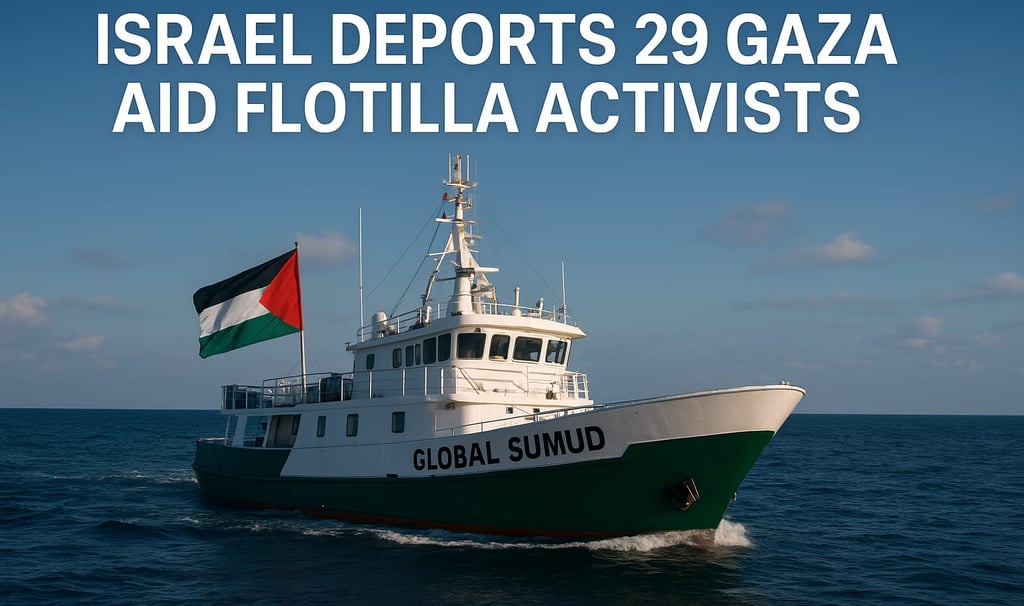Israel Deports 29 Gaza Aid Flotilla Activists — Global Backlash Over Blockade Intensifies
Israel deports 29 Gaza flotilla activists amid global outrage. Rights groups call the Gaza blockade illegal and urge accountability.
Raja Awais Ali
10/5/20252 min read


Israel Deports 29 Gaza Aid Flotilla Activists Amid Global Criticism
Israel has deported another 29 activists who were part of the Global Sumud Flotilla, an international humanitarian mission attempting to break the long-standing Gaza blockade. According to Israeli authorities, the flotilla was intercepted in the Mediterranean Sea while approaching Gaza’s restricted coastal zone, and the activists were detained for questioning before being deported.
This latest action comes as part of a wider crackdown that began in August 2025, during which nearly 450 activists were arrested and over 170 deported. The Israeli Interior Ministry said that all 29 individuals were sent back to their home countries after due legal procedures, maintaining that the operation was lawful and in accordance with international standards.
The Global Sumud Flotilla included human-rights defenders, doctors, and journalists from several countries who set sail to deliver food, medicine, and clean water to Gaza’s besieged population. The blockade, enforced by Israel and Egypt since 2007, has been condemned by the United Nations and numerous human-rights organizations as collective punishment, while Israel insists it is a necessary security measure to prevent weapons smuggling to Hamas.
Among those detained was Swedish environmental activist Greta Thunberg, who joined the mission in solidarity with Palestinian civilians. Several participants claimed they were mistreated in custody, alleging denial of food, medical aid, and legal representation. Some women reported being forced to remove religious attire and facing verbal or physical harassment. Israeli officials dismissed these allegations as baseless, asserting that all detainees were treated properly and deported in good health.
Governments of Turkey and South Africa confirmed that their nationals were among the deported activists and have demanded explanations from Israel. International rights groups, including Amnesty International and Human Rights Watch, called the deportations unlawful and renewed appeals for Israel to lift the Gaza blockade, which they describe as a clear violation of humanitarian law.
The incident has reignited global criticism of Israel’s policy, with analysts warning that continued crackdowns on humanitarian missions could increase diplomatic isolation and invite new legal challenges. The Gaza blockade remains one of the world’s most disputed conflicts, blamed for deep economic collapse, severe shortages of medicine and fuel, and restrictions on over two million Palestinians.
Legal experts point out that obstructing humanitarian aid contravenes the Geneva Conventions, which forbid collective punishment of civilians during wartime. They argue that Israel’s repeated interception of peaceful flotillas risks breaching international law and eroding its global image.
The deportation of these 29 activists once again raises a crucial question: Can humanitarian aid be criminalized under the guise of national security, or has Israel crossed the line between self-defense and human-rights violations?
Stay informed with the latest national and international news.
© 2025. All rights reserved.